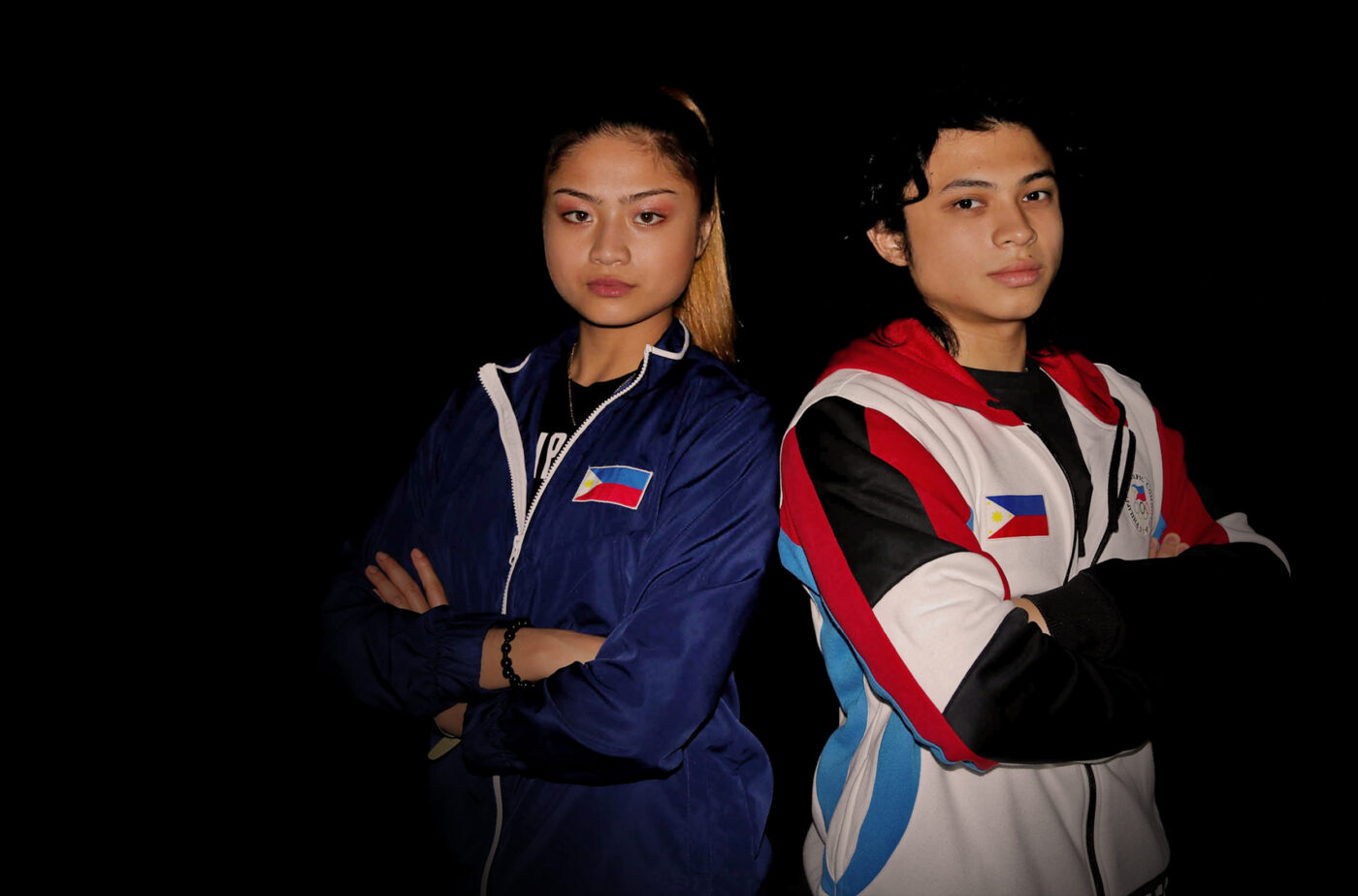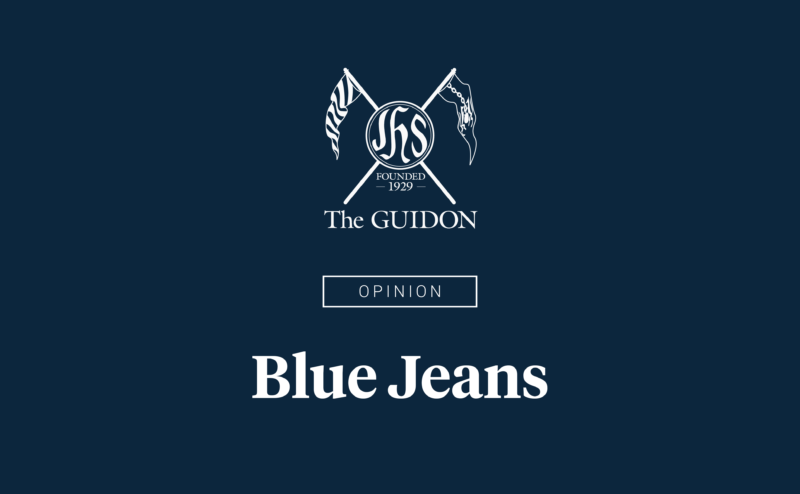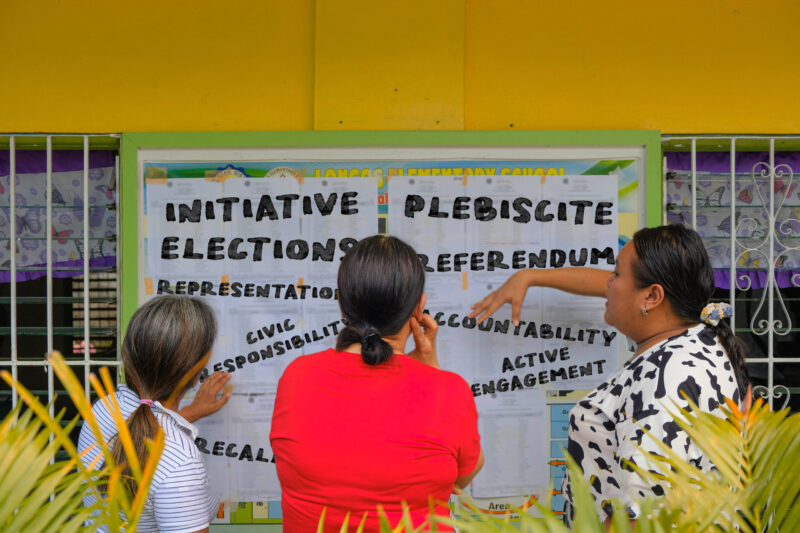An athlete receives no greater honor than to answer the call of country: to carry the name of the nation and the dreams of millions on his or her shoulders. The challenges these athletes face in international competitions and the sacrifices their decisions demand only make the endeavor more daunting, yet the type of athlete who would take this on would find no greater satisfaction than to overcome them.
Although prestigious and fulfilling, the opportunity to represent the country can be very tricky, especially for young Atenean student-athletes who need to juggle academic responsibilities with national obligations. From August 19 to 30, seven Blue Eagles will represent the Philippines at the 2017 Southeast Asian (SEA) Games in Kuala Lumpur, Malaysia.
Pauline Lopez reigns as queen of the hill with a gold medal finish in Taekwondo from the last edition of the Games in 2015. Hoping to emerge as a veteran voice for a young team, swimmer Jessie Lacuna eyes the podium in his fifth SEA Games. Meanwhile, open water swimmer Courtney Gray seeks to make a splash in her first.
Footballers Jarvey Gayoso and Jeremiah Rocha, on the other hand, look forward to replicating their recent collegiate championship success and bounce back from a fruitless campaign in the last Games. Finally, BJ Imperial and Javi Cadiz who carry the torch for the Ice Hockey team are out to make a bold statement.
The journey of these young athletes to the summit is a reminder of how far they have come. As the country comes knocking at their doors, the six deal with tougher challenges, mounting excitement, and bigger responsibilities as both Ateneans and national athletes.
Making the team
One of the lasting memories these athletes will take from their SEA Games experience is receiving the news of their selection. National federations hold tryouts and assessments early in the year to evaluate potential call-ups for tournaments leading up to and including the SEA Games itself.
Athletes are not guaranteed a spot on the team until they see their names on the final list. And given that the SEA Games is a major international sporting event, the pride and excitement that come with selection is a feeling that will never get old.
In her fourth SEA Games, Pauline Lopez shines with the same enthusiasm as ever. “For me, any tournament I get to represent the Philippines in is always exciting,” she shares. “So this isn’t any different [because] I’m going in with the same excitement and eagerness that I had before.”
Imperial and Cadiz hope to forge a milestone in ice hockey’s development in the Philippines. Ice hockey is among the two winter sports introduced for the first time in the Games’ history. Its inclusion could be a sound opportunity for the sport to gain a share of public attention and exposure, providing the boost needed to establish a sound grassroots recruitment program.
In many ways, making it to the Games is a victory for ice hockey in the country as it may serve as a potential foundation for national athletic pride. Having achieved so much already by reaching the international spotlight, the players set their sights on even bigger goals.
“I know [ice] hockey is still a growing sport in the Philippines. Winning in every competition is important to get our fellow Filipinos more excited about it,” Cadiz says.
Thriving under pressure
Representing the country is nothing new for this set of athletes. Lacuna has been a mainstay in the Philippine swimming scene since his teens, having swum competitively in the 2012 and 2016 Summer Olympics. Although being no stranger to wearing the flag on his chest in years past, he admits that the pressure to perform in tournaments like this is inescapable.
“There is more pressure when it comes to these big events because you’re carrying the name of the Philippines, not just your own name,” Lacuna explains. “You get surprised with what your opponents offer you.”
Cadiz and Imperial share the same sentiments. Ice hockey only started to gain traction in the country only around nine years ago, while the Philippine Men’s National Ice Hockey team’s first official tournament was last February during the 2017 Asian Winter Games in Japan. Imperial recounts that other countries did not expect the Philippine squad to amount to much during their inaugural tournament, but the team proved that they can be competitive on the international stage after placing 13th overall out of 18 teams.
Success at the 2017 SEA Games brings with it the prospect of supporters and sponsors, and can inspire aspiring Filipino ice hockey players to play a winter sport in a tropical country. “This will give them a tangible dream to look forward to,” Imperial says. “Not only does this represent a dream, but it also provides them with certain idols and players that they can look up to and strive to become.”
Juggling school and country
Another challenge, however, is the conflict between national and academic obligations, with the athletes having to manage commitments from the national squad, college varsity teams, and for others, even club teams. The seemingly impossible task of balancing these, in light of Ateneo’s unwavering emphasis on academics, is difficult but doable. The six athletes echo that the number one skill needed to juggle all these obligations is time management.
It also helps immensely that Ateneo is very supportive when it comes to its student-athletes representing the country in international tournaments. Lacuna says that Ateneo has been understanding, providing the opportunity for make-ups when he cannot meet requirements because of national team commitments.
Still, the university upholds the unyielding belief that the student status should always come before that of an athlete. The school expects their student-athletes not only to excel in their respective sports, but in their studies as well which help them keep their priorities in check.
But for most student-athletes, to play professionally for the sport they love remains to be the ultimate dream. Large-scale international tournaments like the SEA Games serve as one of the best avenues to showcase their talents and one of the many doors to a bigger athletic stage.
The opportunity to play for the Philippine national team does not come frequently. Athletes often train for most of their lives just to earn a chance to compete with the name of the country on their backs. This is why student-athletes, despite the accompanying challenges, drop everything and jump at the opportunity when asked to play. When the country comes calling, it is hard to turn down the chance of a lifetime.







